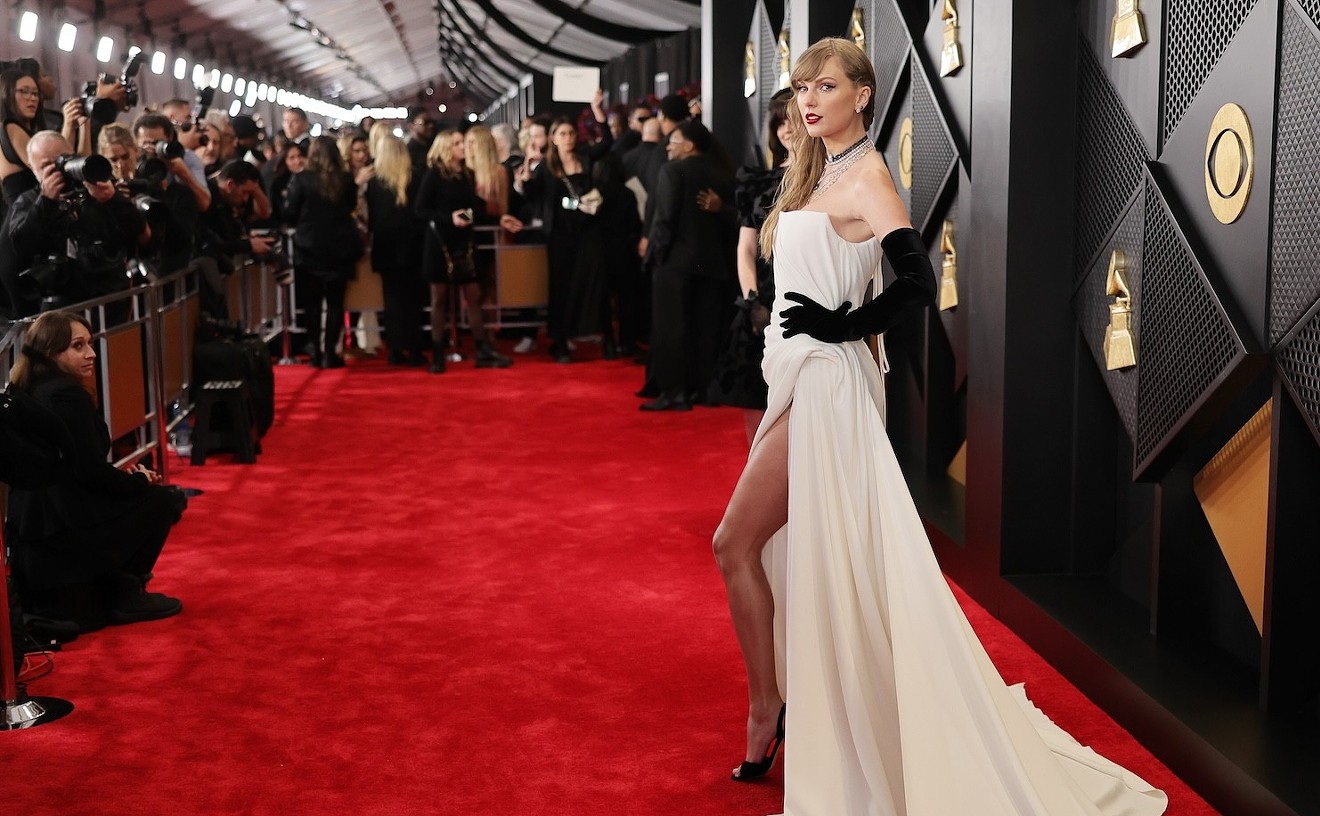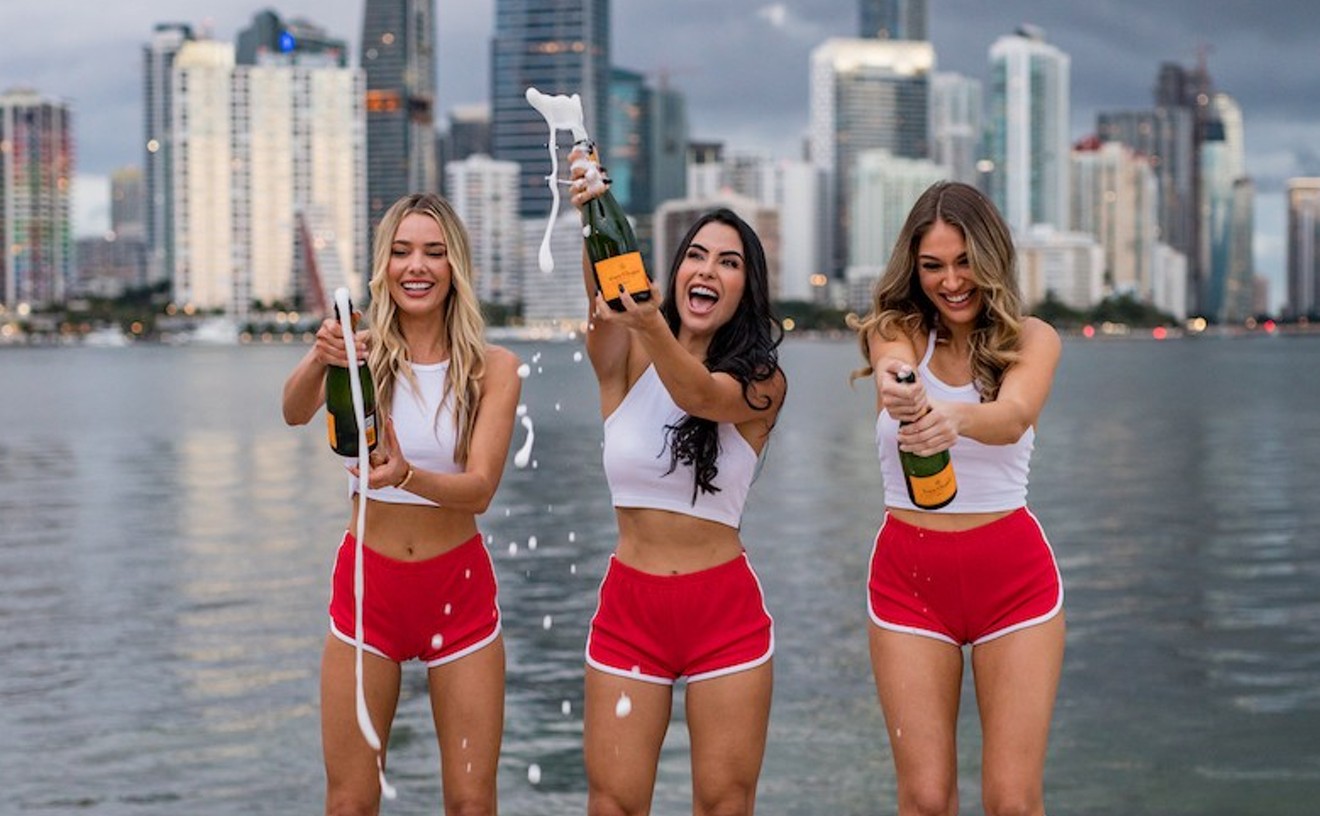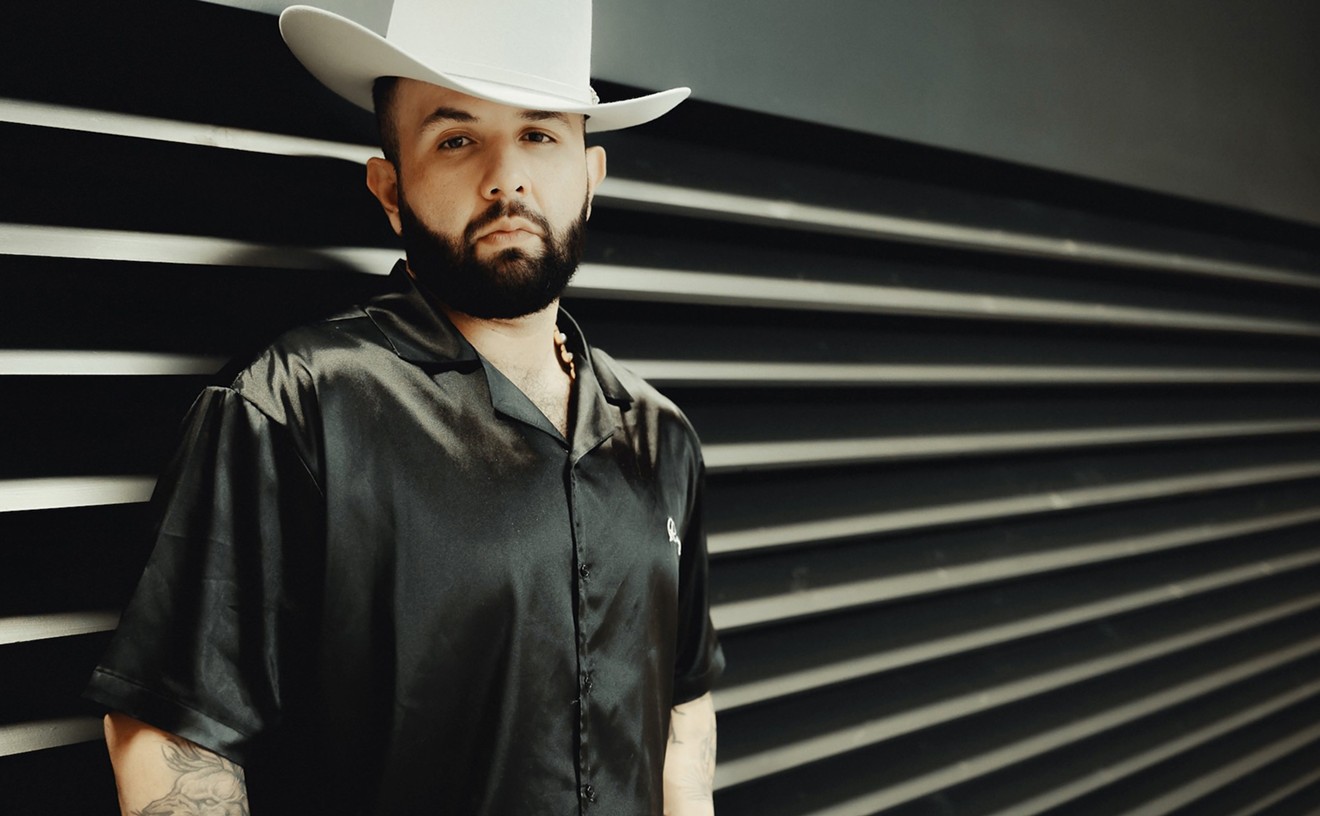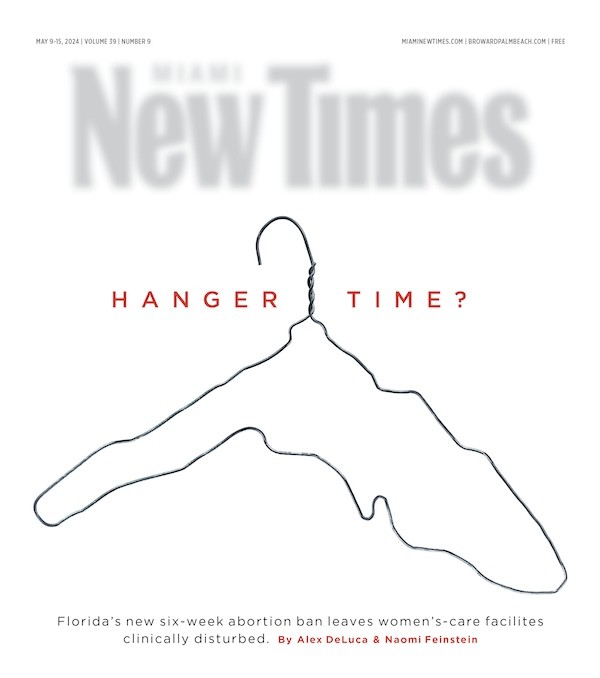Musician Keller Williams came from some humble beginnings. Before becoming a singer, he did construction work for a temp agency. However, Williams soon came to a revelation. "I realized," he said, "I could make more money sitting on a bar stool, drinking beer, and singing." And that's where it all started, folks.
Known for his "looping" technique, covers, and solo performances, Williams has a style all his own. Think of his songs as funky, cool, bluegrassy electronic jams that you can't find on the radio.
Before his stop at Revolution Live this weekend, we spoke with the groovy singer about the story behind naming his music "jazzfunkraggaelectronicagrass," his radio show, and more.
New Times: What are three of your influences.
Keller Williams: Michael Hedges [solo acoustic performer]. He was probably the biggest influence. He showed me how one guy can command a huge audience with one guitar and one mic. He also showed me how to do a cover and make it my own.
Victor Wooten, who is Earth's premier bass player. He is the finest bass player on this planet. Jerry Garcia of the Grateful Dead.
I saw that your music is described as acoustic dance music, AKA "jazzfunkraggaelectronicagrass." Can you elaborate on that?
For the live show, what I call the day job, the solo shows, it's deeply rooted in solo acoustics. Every other song kind of dives into a selection of electronics, creating samples onstage.
Nothing is prerecorded. Everything is live. Drum beats, bass lines, and rhythmic piano lines are all done on guitar (a pickup that goes through my guitar and sends it to a synthesizer module). It's all through the guitar and created live. It's that element of live electronic, and it's mixed with the deep roots of solo acoustic music.
Why do you have single titles for each album?
It started in 1994 with the first record. The idea was to simply attempt to sum up the entire sound, project, and album with one syllable. Not just one word, one syllable. We were trying to do more with less and trying to describe something with one syllable. Describing entire project, sound, feel of music, direction, and logic. That's why.
I read that you use your albums as a "forum for collaborations with fellow musicians." Who is your favorite to collaborate with?
One of the first real bands I was able to get together after I really focused on the solo thing was this group called Williams, Moseley, Droll & Sipe. It's a handpicked band of my musical heroes.
[Keith] Moseley was a good friend that I was in with the String Cheese Incident, a band from Colorado. I toured with them, opened with them, and they took me out of the bars and restaurants. He was the bass player of that band. [Gibb] Droll was an incredible guitar player I would see when I was 18 or 19. [Jeff] Sipe was one of the best drummers in the land.
Describe "the looping thing" and how it paved your career.
It's a device that sits on the floor and goes into a soundboard. I step on the button, I play something, step on the button, and it repeats. I play a bass line or something and go from there.
As for how it changed my career, people started to listen more and come to the shows. I've played in restaurants and bars for a decade or so. When I added bass and started pushing air into the subfrequencies, people started coming to shows, and it pushed ticket sales. Then I started playing in theaters/clubs. This was probably in 1998 or 1997.
Tell us about Keller's Cellar.
It was almost a funk concept in a sense. It's a radio show, carried on a few college stations and AAA stations. It's a 59-minute narrated mixtape of stuff I'm into. It's a very, very expensive hobby. It take three hours to do an hourlong radio show, and I do it in a radio show. [I've done a total of] 183 shows. I was doing two a month, and now I do one a month. I do miss it. It makes me listen to music differently. I haven't done an episode in a long time.
Keller Williams 8 p.m. Saturday, January 24, at Revolution Live, 100 SW Third Ave., Fort Lauderdale. Tickets cost $20 advance, $22 day of the show. Visit jointherevolution.net.
New Party Rules for Millennials
Top 20 Sexiest R&B Songs from the '90s to Today
Ten Best Florida Metal Bands of All Time
Ten Most Annoying Drunk Dudes You Meet at a Bar
Follow @CountyGrind










